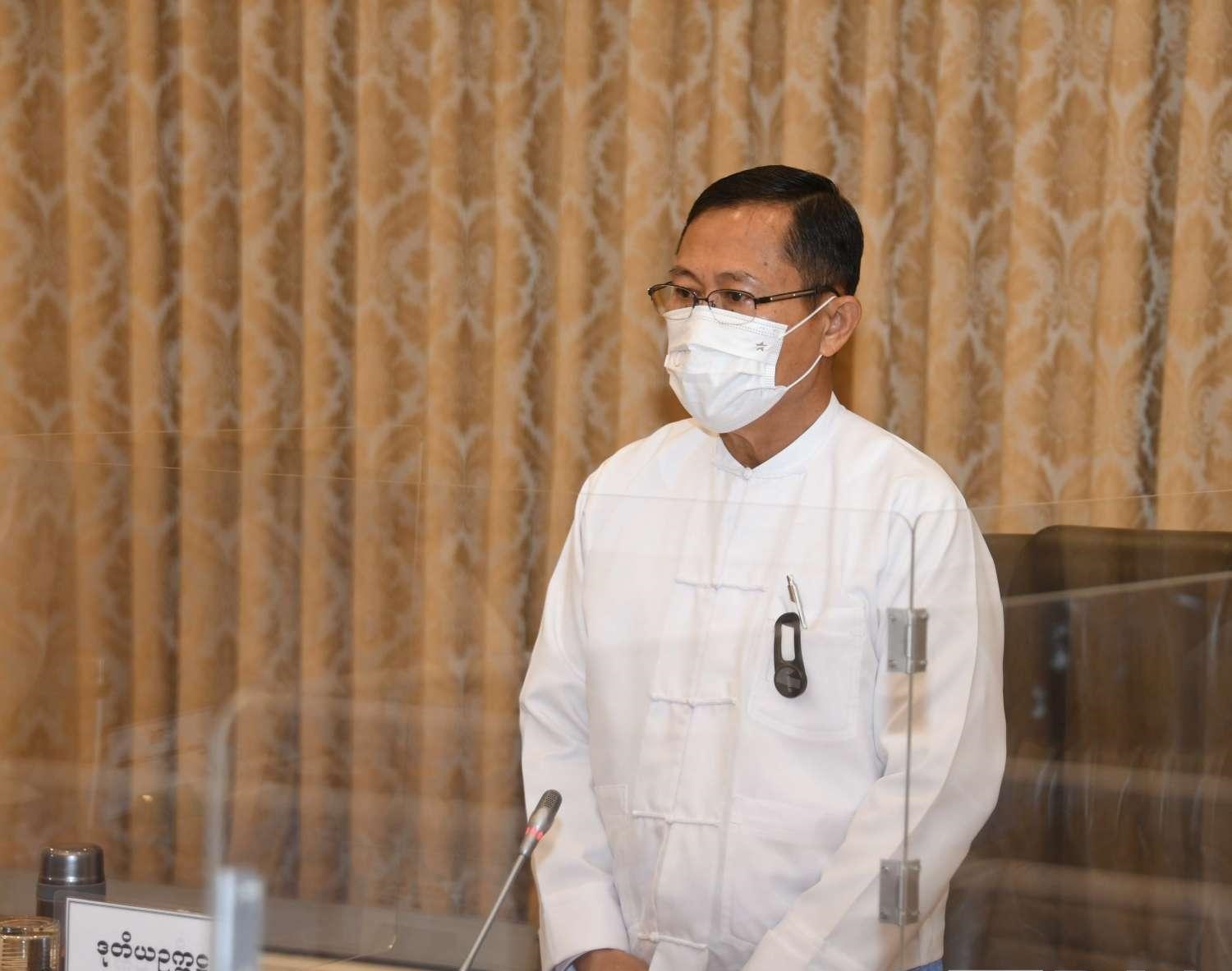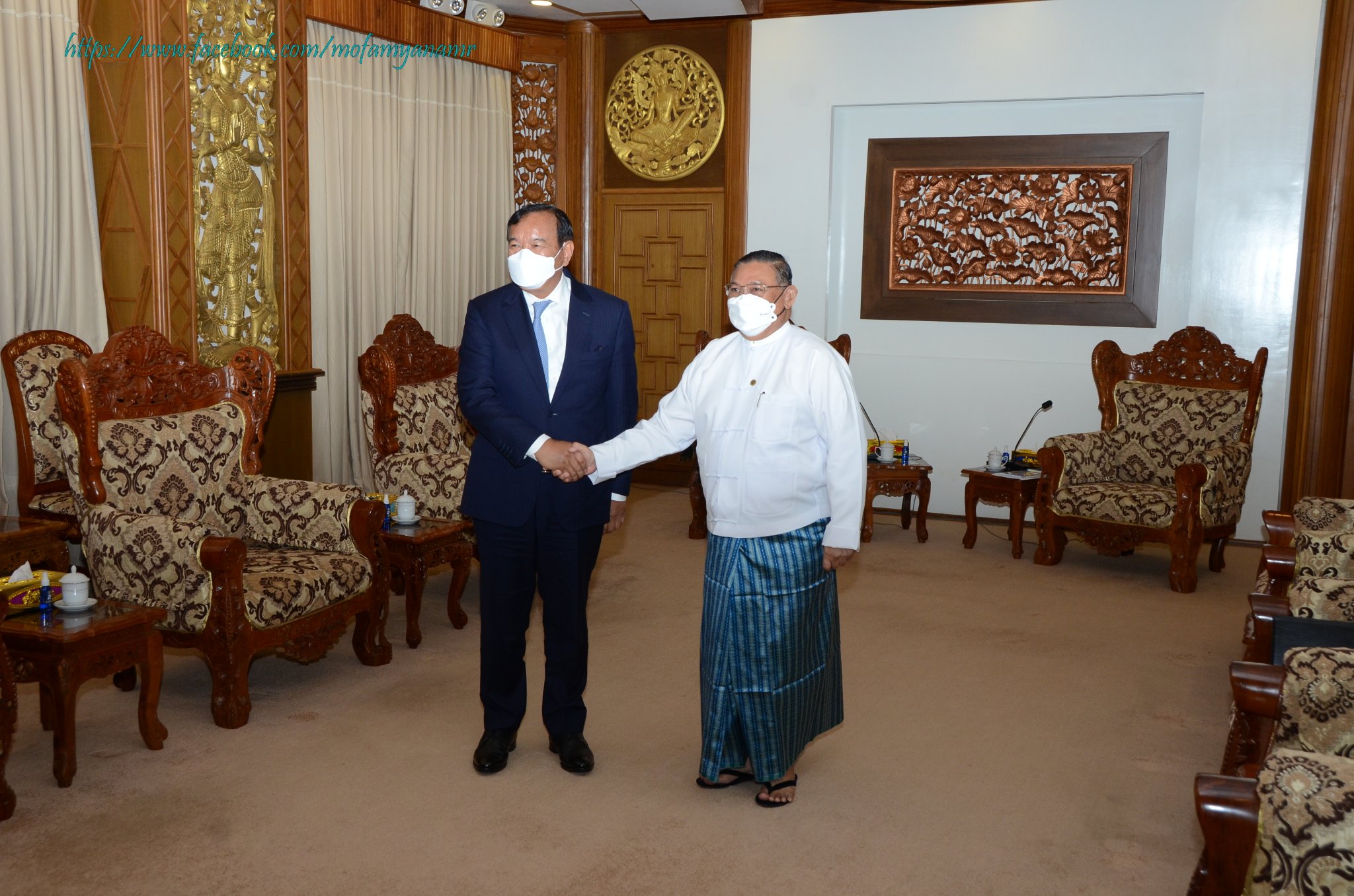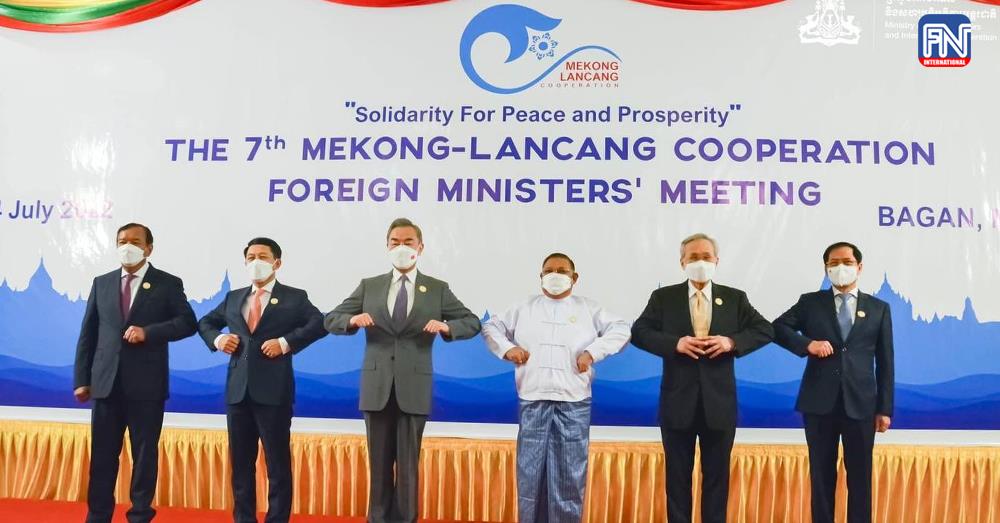Min Aung Hlaing repeats ‘military as guardian’ line
Offering a view that is the complete opposite of that held by the Myanmar people, junta chief Min Aung Hlaing said during a meeting with military personnel and their families in Pulaw Township, Ayeyarwady Region on Monday that the Tatmadaw (Myanmar’s military) must continue to take a leadership role in the country’s politics and maintain its oversight position as the “guardian” of the country.
The junta chief said the military’s role in politics was necessary for the sake of peace and stability. But everyone knows the Tatmadaw’s real motivation—to maintain its absolute grip on power. Min Aung Hlaing has been working on switching the country to a proportional representation (PR) system for the next election, which the regime plans to hold next year, after the National League for Democracy won landslide victories in both elections held under the first-past-the-post system.
The PR system makes it much harder for popular parties to secure a large number of seats in the legislature, thereby enabling the military—whose appointees are already guaranteed 25 percent of seats in the legislature under the army-drafted 2008 constitution—to “lawfully” take control of Myanmar’s political stage.
Soe Win’s call for ‘free and fair’ election a sick joke

Amid serious doubts over the integrity of the general election the regime plans to hold next year, junta No. 2 Soe Win on Wednesday called for timely implementation of a process that can ensure a “free and fair” election, while attending a meeting of the regime-appointed Union Election Commission (UEC) on voter registration.
Soe Win was briefed by UEC chairman U Thein Soe, Home Affairs Minister Lieutenant-General Soe Htut and Immigration Minister U Khin Yi on the work being done to ensure the accuracy of voter lists.
Ex-Major General U Thein Soe oversaw the 2010 general election, which was widely criticized as being rigged in favor of the military’s proxy Union Solidarity and Development Party. As the chairman of the junta-appointed electoral body, he scrapped the results of the 2020 general election, from which the NLD emerged the winner.
U Khin Yi, who served as the police chief under the previous military regime, organized pro-military rallies ahead of the military coup in 2021. Lt-Gen Soe Htut was appointed Home Affairs Minister by Min Aung Hlaing long before the coup.
It is not surprising that Myanmar people and the international community have no trust in the integrity of an election to be organized by such persons.
“I think there’s no chance it could be free and fair,” US State Department Counselor Derek Chollet said on June 11 about the planned election.
Myanmar junta barred from (another) ASEAN summit

For the fifth time, the Myanmar military regime has been excluded from an international meeting. Once again it’s Foreign Minister Wunna Maung Lwin who’s been snubbed; the minister has been barred from attending the upcoming foreign ministers’ summit of the Association of Southeast Asian Nations (ASEAN)—of which Myanmar is a member—in Cambodia. Last month India declined to invite him to its meeting with ASEAN foreign ministers.
The exclusion is another major diplomatic blow to the junta, which has been desperate for international recognition as the legitimate ruler of the country since its coup last year.
Junta chief Min Aung Hlaing was excluded from the regional summit in October and the US-ASEAN Special Summit in Washington last month. Foreign Minister Wunna Maung Lwin was also barred from the bloc’s foreign ministers meeting in February this year.
The exclusions came after the regime’s failure to implement the bloc’s peace plan for Myanmar, which has been in social and political turmoil since last year’s coup.
China’s top diplomat can’t find time for junta chief

Chinese Foreign Minister Wang Yi left Myanmar this week without meeting junta chief Min Aung Hlaing, who counts China as one his few allies after the world denounced him for last year’s coup and subsequent bloody crackdowns.
Wang, the most senior Chinese diplomat to visit Myanmar since the takeover, was in the country for three days, mainly to co-chair the 7th Lancang-Mekong Cooperation Foreign Ministers’ meeting. But his failure to meet with Min Aung Hlaing was a huge embarrassment for the latter who craves visits from foreign dignitaries as a form of recognition for his junta.
But don’t make the mistake of thinking that Beijing is suddenly concerned about international opinion, or sensitive to criticism from the Myanmar people, who detest China for its support to the junta. While he failed to meet with Min Aung Hlaing, Wang told his Myanmar counterpart that Beijing would “support Naypyitaw in safeguarding the country’s legitimate interests, as well as its national dignity on international occasions.” It seems safe to say that Beijing’s support for the regime is motivated by a desire to protect its strategic and economic interests in Myanmar, whatever the cost.

















